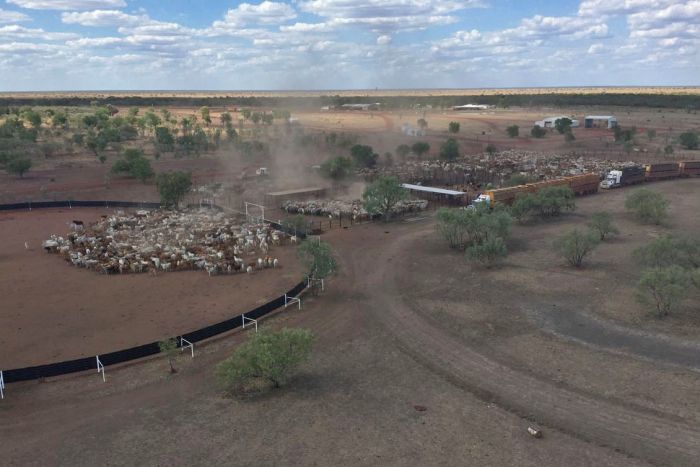
NT’s Murranji Station sold to Queensland’s Bunderra Cattle Co with 12,500 cattle for $23m
A family-owned Queensland cattle company has bought Murranji Station in the Northern Territory for about $23 million, with 12,500 cattle included in the sale.
Bunderra Cattle Co, owned by the Pickersgill family from near Rockhampton, bought the property south-west of Daly Waters, according to documents from the NT Land Titles Office.
The Pickersgill family add Murranji Station to their portfolio of eight cattle properties covering 100,000 hectares in Central Queensland.
The property covers 447,500 hectares of Mitchell and Flinders grass plains, lancewood and bulwaddy country.
RuralCo Property agent Andy Gray said the purchasers were interested in Murranji’s breeding capacity.
“They are looking for breeder country to feed into their own finishing and backgrounding business in Queensland,” he said.
“They have principally bought the property to supply themselves with livestock, so essentially Murranji will become the calf-factory, and they will send most of the cattle back east to finish.”
Mr Gray said Murranji had been extensively developed over the last eight years by the Venturin family, opening up a further 180,000 hectares for grazing.
“They built a new outstation at the old Murranji No.11 stock route bore, which sits just off the Buchannan Highway,” Mr Gray said.
“It is fairly easy to trap cattle, as there is little surface water, so it is fairly economic to run in that regard.”
NT pastoral market going from strength to strength
The Northern Territory’s pastoral market had a very strong 2019, with 11 transactions totalling $265,050,000.
Mr Gray said that the Murranji sale showed that market confidence was continuing, despite uncertain times globally.
“We need food production, that is essential irrespective of what the economic environment is,” he said.
“There will be a period of time where if we have a property for sale, it is going to be pretty hard to show somebody, particularly international people.
“It doesn’t mean that we can’t put the information out there for them to complete their due diligence and prepare themselves for when its appropriate to visit the property.
“I think we are in a strong position due to our strong biosecurity controls we have and the fact that people need food.”